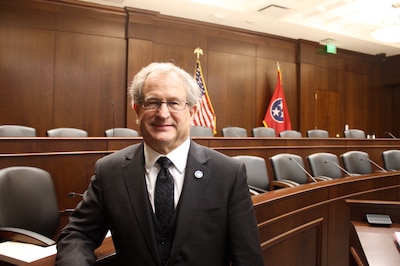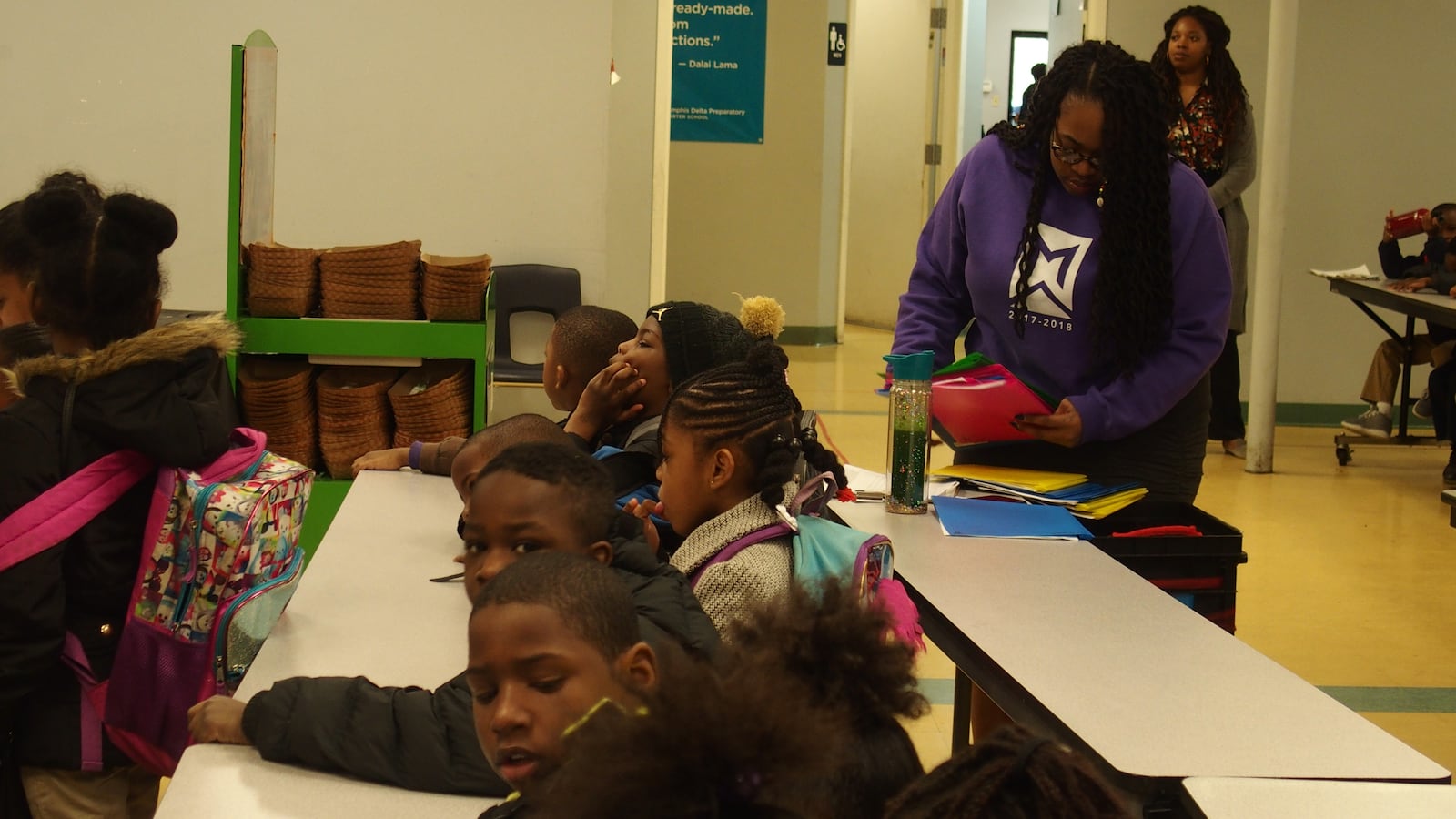A Memphis charter school was only open one year before its test scores put it in danger of closing under state law. But a new bipartisan bill would save it and loosen academic requirements for other low-performing charter schools.
Memphis Delta Preparatory’s test performance in 2016-17 put it in the state’s bottom 5 percent of low-performing schools and on the so-called priority list. State law requires local school boards to revoke the charters of low-ranking schools.
But Rep. Mark White, a Memphis Republican, and Sen. Raumesh Akbari, a Memphis Democrat, are sponsoring a bill that allows school boards to put such charter schools on an improvement plan instead. If a school shows up on the next priority list three years later, the school board would then be required to revoke its charter.
The state House education committee is expected to discuss and vote on the bill Wednesday. If approved, it will be scheduled for a full House vote. The state Senate is scheduling its version of the bill for a vote.
“Everybody agreed to adjust the law and give flexibility to the [local school district] so they could shut down a new charter school on the priority list if they deemed it best — but also would not require them to do so if they deemed otherwise,” White said. “It would give the [district] flexibility.”
Delta Prep found itself in an unusual situation. It opened in 2016, and had only one year of test data to show for its performance. Lawmakers banned last year’s TNReady results from being used to evaluate schools because of technical problems with the state’s online testing program. So the charter school was in danger of being closed based on only one year of test scores.

“Everyone agreed that [Delta Prep] was caught up in the law, but it wasn’t the intent of a law to require closing a charter school that has less than three years of data,” White said of conversations with the state Department of Education, Shelby County Schools, and charter school leaders.
Delta Prep founder Michael McKenna said he and his team sought students from the neighborhood who weren’t meeting state standards for learning, hoping to counter stereotypes of the schools managed by nonprofits.
“And while we saw lots of progress in that first year, a lot of that doesn’t show up on a TNReady assessment,” he said of the school’s results on the state’s 2016-17 standardized test. “If you’re moving even drastic amounts, but it’s still under the bar, it doesn’t register in the results.”
Shelby County Schools board members delayed a vote in October that would have closed Delta Prep and five other charter schools — affecting a total of about 1,500 students. A seventh charter school that landed on the priority list, The Excel Center, was converted to a contract school so it could continue to serve adult students who previously dropped out of high school.
Now, school board members are waiting to see if the bill advances before scheduling another vote. The bill would still allow them to close all six charter schools, but the board’s hesitation suggests some will be spared.
“We do want to be fair and that’s the biggest thing around where the state law will settle,” said board member Miska Clay Bibbs. “And making sure that we also give schools the opportunity to do their best.”
The Tennessee Charter School Center, which lobbies on behalf of charter schools, supports the bill and said it doesn’t give charter schools a free pass.
“We appreciate the accountability the legislation represents as well, since the legislation requires that a second consecutive appearance on the priority list would result in a school’s closure,” the group said in a statement.
School board members in Memphis have said basing a school’s fate on TNReady at all is problematic.
“I’m not going to tell you I’m going to hold you accountable for a test I have no faith in,” one board member, Stephanie Love, said recently.

